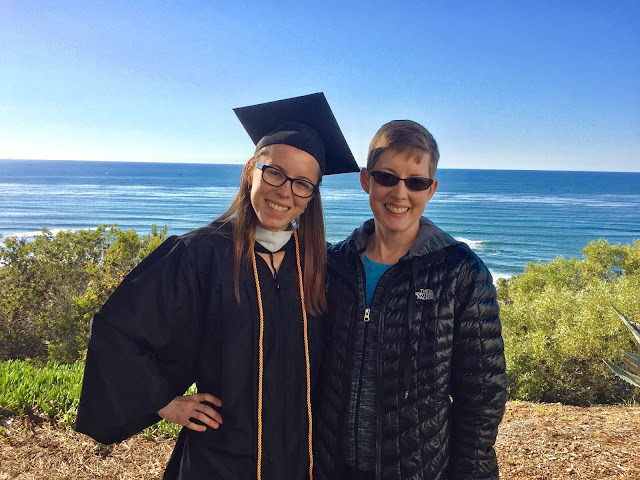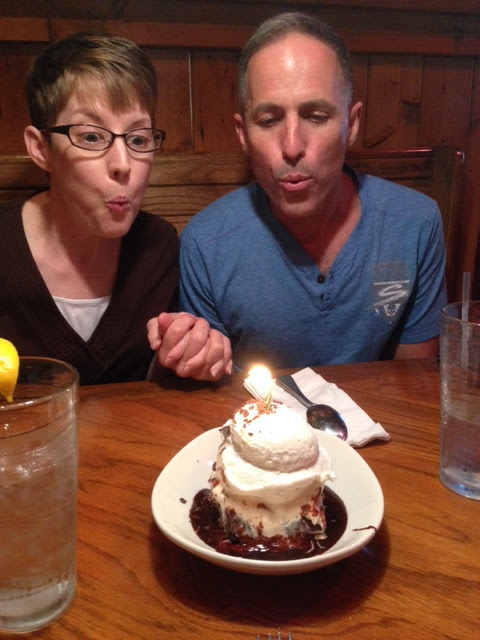How to Stop Feeling Guilty for Passing Down Your Chronic Illness
I was reading one of my favorite celiac disease support groups on Facebook when I saw it: a post written by a heartbroken mom whose 9-year-old had just been diagnosed with celiac disease. "My heart is breaking because I literally gave my son celiac disease," she wrote.
*Also found at Terrific Tuesday, Wine'd Down Wednesday, Wow Me Wednesday, This is How We Roll, Flaunt it Friday, Share Fest*
How have your parents, siblings or friends helped you with managing celiac disease or another chronic illness? And if you're a parent of a child with a chronic illness, tell me your thoughts in the comments. I'd love to hear them!
My response? As crazy as it sounds, in many aspects, your son is lucky...and you should try to replace your guilt with guidance.
What do I mean?
My Chronic Illness Family Story
Let's take a quick look at my own family history. My mom has fibromyalgia. I was diagnosed with it at age 11. My dad has the celiac disease gene, but it's never been activated so he can eat gluten just fine. I, on the other hand, became an "active" celiac at age 17.
It would be a lie to say that my parents haven't ever felt guilty for passing down their chronic illnesses. My mom once told me that she felt nervous about having children because she didn't want to pass along fibromyalgia and the daily pain that came with it. As for my dad, well, we didn't even know that celiac disease was in our family history until I was diagnosed. As I struggled through a liquid diet, extreme weight loss and being hospitalized shortly after my 18th birthday, though, I know my dad hurt with me. Not only because he loved me, but also because it was his gene that landed me in a hospital bed.
It's also impossible to deny that you are - literally - one of the causes of celiac disease in your child. Celiac disease is hereditary. If you have the celiac disease gene (and there are two possible genes - the HLA-DQ2 and HLA-DQ8 - involved in the celiac disease genetic equation), you can pass it to your children. In fact, people with a close family member (parent, child, sibling, etc) with celiac disease have a 1 in 10 chance of developing celiac disease as well. Scientists are also reporting genetic components in several other chronic illnesses - including fibromyalgia.
However, if living with a chronic illness for 10+ years has taught me anything, it's that support is everything. One of the hardest parts of living with an invisible illness like fibromyalgia is that it's hard for other people to "get it." I look normal, so how can I be in pain all the time? I can run like everyone else, so how can it take me extra time to recover? I seem like a typical college student, so how can I need at least 10 hours of sleep every night?
But ever since I was little, I've had my own fibromyalgia warrior only a few steps away: my mom. She believed that I was in pain, even though eleven years old is ridiculously young to be diagnosed with fibromyalgia. She has taught me the magic of heat packs and Icy Hot and craniosacral massages when I'm having a flare-up. And when I'm feeling like it's not fair that everyone else is "normal" and I'm just struggling to think through the "fibro fog" (basically a continuous brain fart), she's there for me to call, commiserate with or hug.
I'm lucky enough to be blessed with a gluten free foodie-in-arms as well. When I went gluten free for celiac disease, my mom went gluten free with me and discovered she has gluten intolerance. When we go out to eat as a family, I'm not the only one enviously staring at the bread basket. When we find a new gluten free bakery, my mom and I are both jumping up and down (sometimes literally). And when I've been glutened, my mom knows how much it can suck.
Parenting a Child With Chronic Illness? What You Should Know
What am I trying to say? If you have celiac disease and passed along your celiac disease inheritance -- heck, if you have any chronic illness that you "gave" to your child - focus less on feeling guilty and more on how your can help your child thrive with their new diagnosis.
You already know the best meals and brands to enjoy on the celiac disease diet. You know how to navigate social situations awkwardly filled with food you can't eat. Your knowledge of celiac disease symptoms may have even helped your child undergo celiac disease tests before their intestines were damaged any further.
True, if you have the celiac disease gene but it hasn't been activated - meaning you don't have to eat gluten free and may not even know any celiac disease facts - it can be harder to fight the guilt. You may feel like the blind leading the blind as you learn how to keep your child safe in a world full of gluten. You might even ask yourself, "Why does my child have to deal with celiac disease and not me?" However, you can still be the best thing since gluten free bread for kids with celiac disease.
How? My dad is a prime example. He doesn't have celiac disease, but he researched it like a pro after my celiac disease diagnosis. He reminds me not to eat the tomatoes from his crouton-filled salad when it slips my mind. He's always game for trying new gluten free restaurants ("as long as it's not just full of hip vegan food" anyway!). He advocates on my behalf when I need a helping hand, and he never makes me feel like my celiac disease diet is a burden.
Research has found that family support increases the odds of someone thriving with celiac disease. This aligns with other reports that social support improves the health of those with chronic illnesses. In fact, social support has been linked to better blood pressure control for people with hypertension, fewer cardiac issues for those with heart disease and less joint pain and inflammation in those with arthritis.
The Bottom Line of Helping Children with Celiac Disease (or Other Chronic Illnesses)
Are you ever going to be able to totally erase your guilt? Maybe, maybe not. Even if you considered the odds of giving your chronic illness to your kids, you might not be emotionally prepared to see your child's blood test for celiac disease turn up positive.
Is this situation - seeing your child struggle with the same chronic illness as you - ideal? No. But will your child have tons of support along the way? YES.
And sometimes the unconditional love, support and guidance of a parent can make all the difference...
*Also found at Terrific Tuesday, Wine'd Down Wednesday, Wow Me Wednesday, This is How We Roll, Flaunt it Friday, Share Fest*
How have your parents, siblings or friends helped you with managing celiac disease or another chronic illness? And if you're a parent of a child with a chronic illness, tell me your thoughts in the comments. I'd love to hear them!








Thanks. I have Migraines and I'm Bipolar and both of those are genetic. My mom had migraines, now I have them and it's inevitable that one my children will have one or the other (or both!) because I have 4 children. I wouldn't wish either of those on my worst enemy and I worry that I have doomed my children.
ReplyDeleteSending so much love your way, Kathleen. I'm sure your children feel VERy lucky to have you as their mother, regardless of what genes might come with the deal ;)
DeleteLove this. I was just diagnosed with MS and all I could think about is what does this mean for my future children when we are ready to start growing the family. I have learnt though we can't live in fear and to not have children, being one of the most important things to me, I would just not feel whole. I and a few others were attacked by another person who says we are horrible people if we choose to have children knowing the disease we have. Yet, there's a higher chance of them developing a cancer or being in a car accident that could change their whole life than my MS. There's always going to be something in the world, everyone has a struggle but I agree 100%, a great support system can do a lot. I was the first person in the family to be diagnosed with MS, so we are still learning how and where it could've stemmed from :) Thanks for sharing!
ReplyDeleteSending so much love your way, Nicole. It's such a good point that we can never 100% protect our children from dangers in the world, whether it's a random car accident or a random gene they inherited from us. I think being aware of the risks, knowing the support system that's needed and greatly considering all of the pros and cons are all good steps to take before having kids, regardless of whether we have a chronic illness or not!
DeleteThanks so much for the encouraging words! I've been worried for several years now that I may have passed my fibromyalgia on to my son, although so far, thankfully, he's not showing any symptoms. It's nice to have a reminder that if I did, I'll be uniquely qualified to support him and help him navigate his illness.
ReplyDeleteSending lots of love to you and your son, Terri! Thanks for commenting <3
Delete